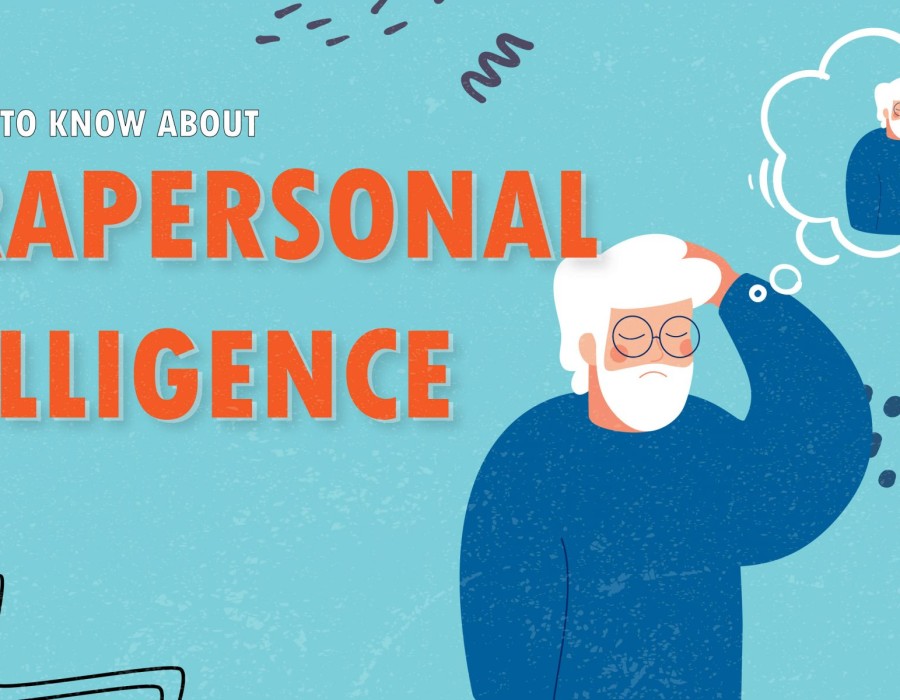Intrapersonal intelligence, a concept proposed by Howard Gardner as part of his theory of multiple intelligences, refers to the ability to understand oneself, including one's emotions, motivations, strengths, and weaknesses. It involves introspection, self-awareness, and the capacity to navigate one's inner landscape effectively. It is crucial for personal growth, self-empowerment, and fostering resilience in various aspects of life.
Realizing the Foundations of Self-understanding
At its core, Self-understanding begins with self-awareness—the ability to recognize and comprehend one's own thoughts, feelings, and behaviors. This foundational skill forms the basis for introspection and self-reflection, enabling individuals to gain insight into their beliefs, values, and aspirations. By cultivating self-awareness, individuals can identify their strengths, acknowledge areas for improvement, and align their actions with their personal goals and values.
Self-Reflection and Introspection
Self-reflection involves examining one's thoughts, emotions, and experiences with a critical and introspective mindset. It allows individuals to gain deeper insights into their motivations, decision-making processes, and patterns of behavior. Through self-reflection, individuals can enhance their understanding of themselves, clarify personal values, and identify opportunities for personal growth and development.
Emotional Awareness and Regulation
Emotional awareness is the ability to recognize and understand one's own emotions, including their triggers and impact on behavior. It involves being attuned to subtle changes in emotional states and developing the capacity to regulate emotions effectively. By cultivating emotional awareness and regulation skills, individuals can manage stress, navigate interpersonal relationships, and make informed decisions based on emotional intelligence.
Goal Setting and Achievement
Intrapersonal intelligence encompasses setting meaningful goals that align with personal values, aspirations, and long-term objectives. Effective goal setting involves clarity, specificity, and a strategic approach to planning and execution. By setting realistic and achievable goals, individuals can stay motivated, track progress, and celebrate accomplishments, fostering a sense of purpose and direction in their lives.
Self-Motivation and Resilience
Self-motivation refers to the ability to inspire oneself to take action and pursue goals despite challenges or setbacks. It involves maintaining optimism, perseverance, and a proactive mindset in the face of adversity. Developing resilience through self-understanding enables individuals to bounce back from failures, learn from experiences, and adapt strategies to achieve success in various endeavors.
Practicing Mindfulness and Meditation
Mindfulness practices, such as meditation and mindful breathing, cultivate present-moment awareness and non-judgmental acceptance of thoughts and emotions. These practices enhance self-awareness, emotional regulation, and overall well-being by promoting inner calm and mental clarity. By incorporating mindfulness into daily routines, individuals can reduce stress, enhance focus, and cultivate a deeper connection with their inner selves.
Engaging in Journaling and Self-Expression
Journaling allows individuals to express thoughts, emotions, and reflections in a private and introspective manner. It serves as a therapeutic tool for processing experiences, gaining perspective, and identifying patterns of behavior. Through journaling, individuals can track personal growth, clarify goals, and explore creative insights that contribute to enhanced self-understanding and emotional resilience.
Seeking Feedback and Self-Assessment
Seeking feedback from trusted mentors, peers, or counselors provides valuable perspectives on strengths, weaknesses, and areas for improvement. Constructive feedback fosters self-awareness, promotes continuous learning, and facilitates personal growth. Engaging in self-assessment activities, such as personality assessments or skills inventories, further enhances self-awareness by identifying personal preferences, strengths, and areas for development.
Setting and Prioritizing Personal Development Goals
Setting SMART (Specific, Measurable, Achievable, Relevant, Time-bound) goals related to personal development fosters clarity, commitment, and accountability. By prioritizing goals that align with personal values and aspirations, individuals can maintain motivation, track progress, and achieve meaningful outcomes. Regularly reviewing and adjusting goals based on feedback and evolving priorities ensures ongoing growth and adaptation to changing circumstances.
Improved Decision-Making and Problem-Solving
It enhances critical thinking skills, enabling individuals to make informed decisions and solve problems effectively. By understanding their own motivations, preferences, and decision-making processes, individuals can approach complex situations with clarity, creativity, and resilience.
Strengthened Relationships and Communication
Self-awareness and emotional regulation skills developed through it, contribute to healthier, more empathetic relationships. Individuals with strong intrapersonal intelligence are better equipped to understand others' perspectives, communicate effectively, and resolve conflicts constructively, fostering trust and mutual respect in personal and professional interactions.
Personal Growth and Resilience
It cultivates resilience, adaptability, and perseverance in the face of adversity. Individuals with strong self-understanding learn from setbacks, maintain optimism, and embrace challenges as opportunities for growth and learning. This resilience enables them to navigate life's uncertainties with confidence, resilience, and a proactive mindset.
Conclusion
Intrapersonal intelligence is a fundamental aspect of personal development and well-being, encompassing self-awareness, emotional regulation, goal setting, and self-management skills. By cultivating that through practices such as mindfulness, self-reflection, goal setting, and seeking feedback, individuals can enhance their self-understanding, improve decision-making, strengthen relationships, and achieve greater personal fulfillment and resilience.





Comments